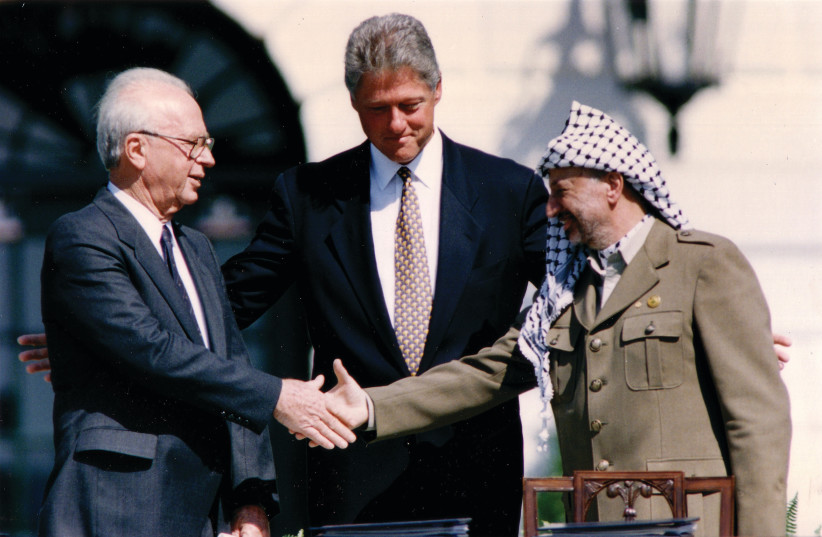Israel doesn’t have the right to “veto” Palestinian statehood, European Union foreign policy chief Josep Borrell said on Tuesday amid a fierce debate between Prime Minister Benjamin Netanyahu and the international community over what happens once the Gaza war is over.
“Israel cannot have the veto right to the self-determination of the Palestinian people,” Borrell told reporters during a press conference in Brussels on Tuesday.
“They do not have a veto right. If the United Nations recognizes – as it has recognized many times – the self-determination right of the Palestinian people, nobody can veto it,” he declared.
Netanyahu, who is seeking to shore up political support, which has been flagging, on the right. He has been blunt in recent weeks about his opposition to Palestinian statehood, even as the United States, the EU, and moderate Arab countries have insisted that a two-state process must occur once the war is over.
The prime minister has stressed that such a move would be an existential threat to Israel, given the importance of IDF security in both Gaza and the West Bank. This is territory that the international community says must be part of the final boundaries of a Palestinian state.

On Tuesday, Borrell provided the EU’s 27 foreign ministers with the draft of a peace plan that he wants the bloc to adopt and use as a road map to implement the two-state solution based on the pre-1967 lines, with eastern Jerusalem as the Palestinian capital, starting with an international peace process.
Outspoken in criticism of Israel
He has been outspoken in his criticism of Israel for its conduct in the Gaza war and has said that the international community should face the possibility that it might have to impose a two-state resolution to the conflict.
“We have to talk about implementing the two-state solution instead of talking about a “peace process,” Borrell said.
The US and the EU are among those who, in the past, have held that recognition of Palestinian statehood must come after a final status agreement for the two states. In light of the frozen peace process, the Palestinian Authority has argued for the last decade that statehood recognition must be granted unilaterally.
In New York, Palestinian Authority Foreign Minister Riyad Malki, who met on Monday with the EU foreign ministers, called for the Security Council to recognize “Palestine” as a member state of the UN.
“There are only two paths ahead, one that starts with Palestinian freedom and...one that dooms the region to endless bloodshed and conflict.
“Israel should no longer entertain the illusion that there is somehow a third path where it can choose continued occupation and...still achieve regional peace and security,” Malaki said.
“The Palestinians were not granted a ‘veto’ right over Israel’s admission to the UN 75 years ago; Israel does not have a veto right over the admission of the State of Palestine 75 years later,” he added.
Israel’s Ambassador to the UN, Gilad Erdan, reminded the 15-member Security Council that the IDF withdrew from Gaza in 2005. He noted that their comments did not address the threat Hamas poses to Israel from Gaza, given that it has promised to repeat the October 7 attack in which terrorists killed 1,200 people in the southern part of the country and seized another 240 as hostages. Close to four months later, some 132 hostages are still being held in Gaza.
Erdan asked the Council what would happen if there was a ceasefire before the IDF destroyed Hamas. He answered his own question by explaining that it would regroup, rearm, and attack again.
“How can you call for a ceasefire and mention a solution to the conflict at the same time? This is a complete oxymoron. You cannot have both; it’s impossible. Hamas seeks to annihilate Israel. If you support a position that leaves Hamas in power, you cannot pretend to wish for a solution to the conflict,” Erdan said.
